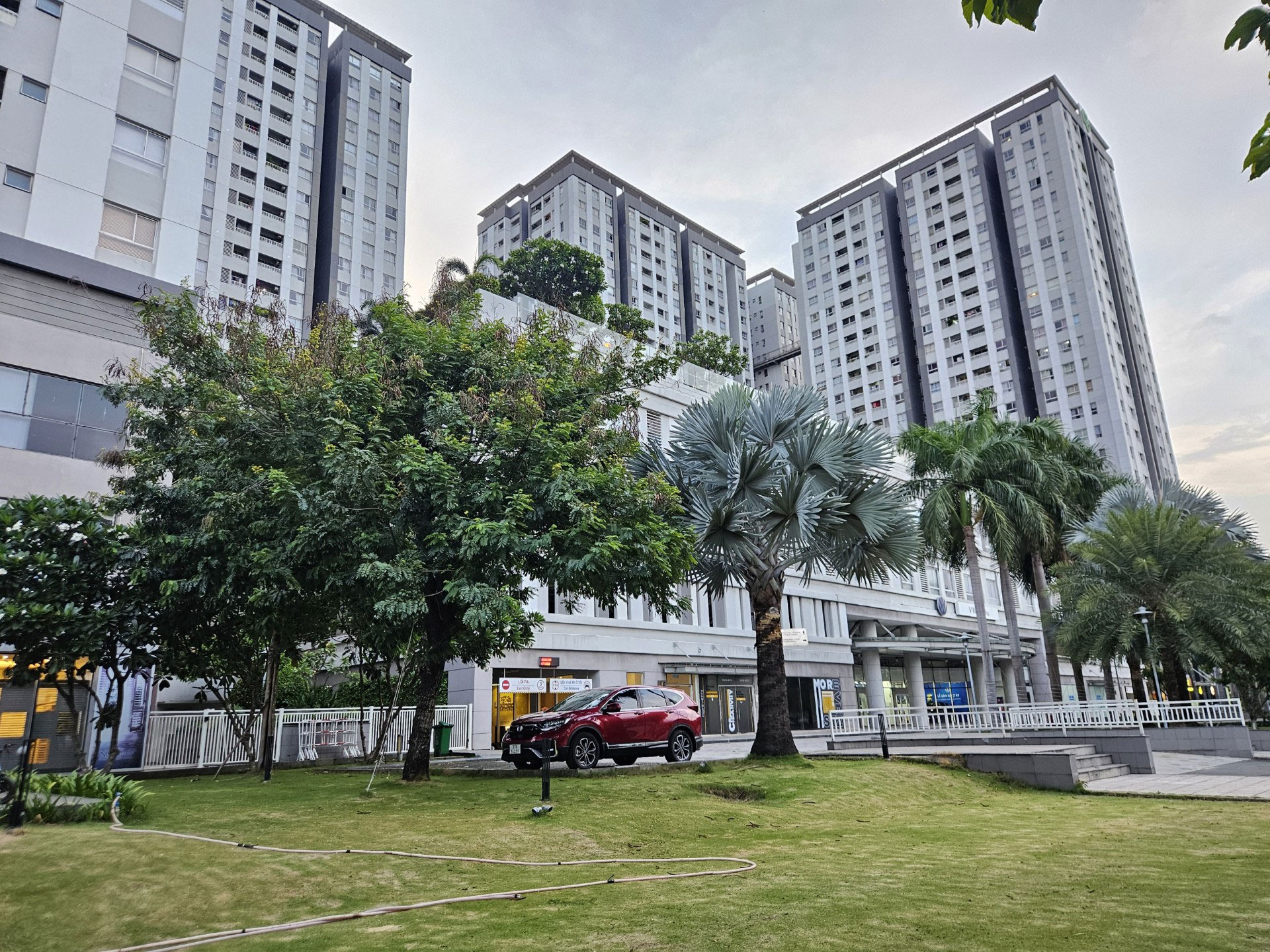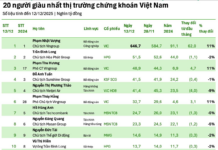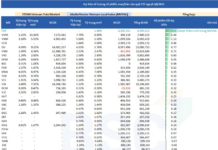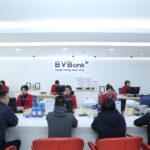While overall credit growth in the banking system reached 6% in the first half of the year, loans for personal and consumer needs only increased by 1.1% as of May 2024. Commercial banks are facing pressure to enhance their services and reduce costs to attract and retain borrowers.
Attractive Interest Rates
Vietcombank is promoting loans for early repayment of debts from other banks, offering attractive interest rates starting from 5.5% for the first six months, 5.7% for the first year, or 6.2% for the first 18 months.
VPBank offers interest rates as low as 4.6% for customers who refinance their loans from other banks, along with a grace period of up to 24 months. This applies to individuals with existing loans for real estate, auto, business, or consumer purposes, secured by real estate assets.
BVBank is offering promotional interest rates starting from 3.49% for production and business loans refinanced from other banks. For consumer loans with asset collateral, such as real estate purchases or construction, the interest rate is as low as 5.49%.
Several commercial banks have introduced attractive home loan packages with extremely low-interest rates. For instance, PVcomBank is offering credit packages for home purchases with interest rates starting from 3.99%, which is among the lowest in the market.
SHB provides home loan interest rates from 5.79% and allows borrowers to finance up to 90% of the property value without a limit on the loan amount. Additionally, they offer a 24-month grace period on principal repayment, reducing financial pressure during the initial stages of homeownership.
Easier Access to Loans
The increase in loan refinancing has positively impacted the housing loan portfolios of some banks. Techcombank’s financial report for the first half of 2024 showed a 9.1% year-over-year increase in their housing loan balance, reaching VND 181,700 billion. Their housing loan disbursements have maintained a positive growth trajectory, even during the challenging period for the real estate market from 2022 to mid-2023.

Increased refinancing has led to improved housing loan portfolios for some banks.
According to TPBank, while project-based home loans have decreased, there has been an increase in the proportion of loans for residential land purchases. As a result, their overall real estate credit balance has grown by 6% compared to the previous year.
Vietcombank shared that they have launched multiple promotional programs with fixed interest rates ranging from 6 to 60 months, providing borrowers with more affordable financing options. They also allow qualified borrowers to use the same collateral that was previously pledged to another bank, making it easier for customers to refinance their loans.
Mr. Pham Duy Hieu, Acting General Director of ABBank, noted that demand for personal loans, including housing loans, remains sluggish due to economic challenges and job cuts affecting people’s incomes. Additionally, the real estate market is currently subdued, and there is a lack of apartment supply that aligns with people’s income levels.
To attract borrowers and stimulate credit growth, some commercial banks are offering additional incentives. VIB, for instance, offers interest rates starting from 5.5% for the first six months or a fixed rate of 7.5% for the first two years for customers who transfer their existing loans to VIB. They have also narrowed the post-promotion interest rate spread to 2.9%, compared to the typical 3.5% to 4% offered by other banks.
VIB stands out by providing upfront disbursement to customers to settle their existing loans, eliminating the need for borrowers to worry about arranging funds for repayment. This policy minimizes risks and reduces additional costs for borrowers.
Responding to a question from the Nguoi Lao Dong newspaper regarding the policy of allowing early repayment of loans from other banks, Mr. Dao Minh Tu, Permanent Deputy Governor of the State Bank of Vietnam, stated that this policy aims to enhance transparency and market mechanisms. It empowers borrowers to choose the bank that offers the most favorable policies, interest rates, and quality of services. Borrowers have the right to evaluate, compare, and make informed decisions based on competitive interest rates offered by different banks.
“This policy benefits borrowers and encourages banks to improve their services to retain existing customers and attract new ones,” emphasized Deputy Governor Dao Minh Tu.
Despite the extremely low-interest rates offered by banks, the growth in loans for home purchases, consumer needs, and other purposes has not met expectations. The main reason for this is the sluggish recovery of the real estate market and the lack of apartment supply that aligns with people’s income levels.
Additionally, with banks offering similar interest rates for home loans, borrowers are less inclined to switch their loans to another bank.
Which bank offers the highest interest rate for online savings in early February 2024?
Beginning February 1st, 2024, several banks have been adjusting their interest rates downwards for savings accounts ranging from 1 to 24 months. Based on a survey conducted across 16 banks, the highest annual interest rate for online savings deposits at a 6-month term is 5%, while for a 12-month term, it is 5.35%.
Banks Sacrificing Profits to Support the Economy
In 2023, the question “which bank has the lowest interest rates?” is being talked about more than ever. With the prevailing difficult economic situation affecting individuals and businesses, in line with the directive of the State Bank of Vietnam (SBV), banks have unanimously sacrificed their profits by reducing lending rates and introducing credit packages with interest rates as low as 0%.








































